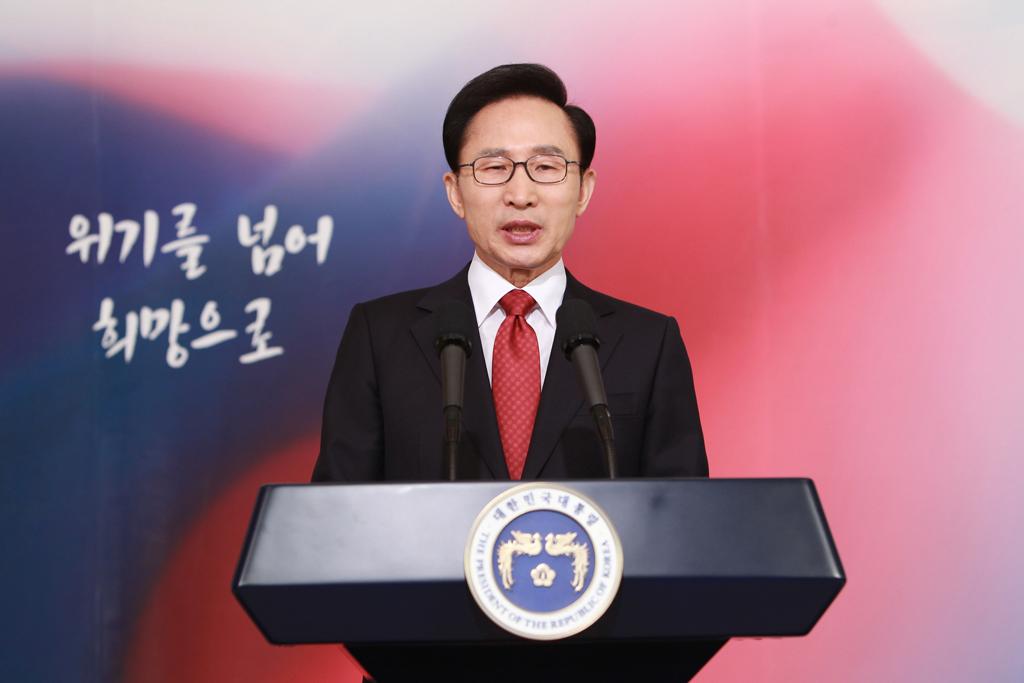North Korea calls South Korea’s President Lee Myung Bak “chieftain of evils”
South Korean President Lee Myung Bak makes a televised New Year speech in Seoul on Jan. 2, 2012. Lee said the door for better cross-border ties is left open this year as North Korea’s new leader takes over while vowing to respond strongly to any provocations.
Kim Jong Un, or at least those pulling the strings in North Korea, has come out of the gate swinging.
His regime has called South Korea’s President Lee Myung Bak a “pro-US fascist maniac” and a “chieftain of evils” because he placed his troops on high alert after leader Kim Jong Il’s death.
The Associated Press reports Wednesday that the North’s Committee for the Peaceful Reunification of Korea said the North Korean army would force South Korea to pay a price for the action.
The statement, which was run by North Korean state media, also blasted Lee for barring official delegations from attending Kim Jong Il's funeral in late December.
On Jan. 2, Lee, who has classically taken the hardline on North Korea, and ended no-strings-attached aid in 2008, gave a speech that tried to play to both sides, saying the door was open for better cross-border relations, but he wouldn't hesitate to respond strongly to provocation.
So, what to make of it? Is this the same old dance?
Bradley K. Martin, author of "Under the Loving Care of the Fatherly Leader: North Korea and the Kim Dynasty," said, basically, he thinks so.
It's the "same old bluster" at a time of uncertainty and transition following the death of Kim Jong Il. He wrote by email:
[North Korea] tends to intensify the same old bluster against external enemies at times like this when they need to rally the masses at home for some domestic purpose.
More from Bradley Martin on GlobalPost: Why the North Koreans weep
Christine Ahn, executive director of the Korea Policy Institute, points out in her column today that while "regime collapse is not in the cards for North Korea," the temperature is rising down South.
What happens in North Korea, however, is also clearly influenced by what happens in Seoul, and the winds of change are blowing strong south of the Demilitarized Zone where grassroots movements are challenging the country’s retrograde neo-Cold War leadership.
A couple examples of democratic change in the South:
The people of Gangjeong village have risen up to stop the construction of a naval base on Jeju Island.
In Busan, thousands came out to support Kim Jin Suk, the country’s first woman welder, who staged a one-woman protest against layoffs by Hanjin Heavy Industry and Construction.
So, while the North may be continuing along with the same old bluster, there is reason to think that a changed South could mean a shift in relations between the two historically prickly neighbors.
More from GlobalPost: Q & A with Christine Ahn
Our coverage reaches millions each week, but only a small fraction of listeners contribute to sustain our program. We still need 224 more people to donate $100 or $10/monthly to unlock our $67,000 match. Will you help us get there today?
